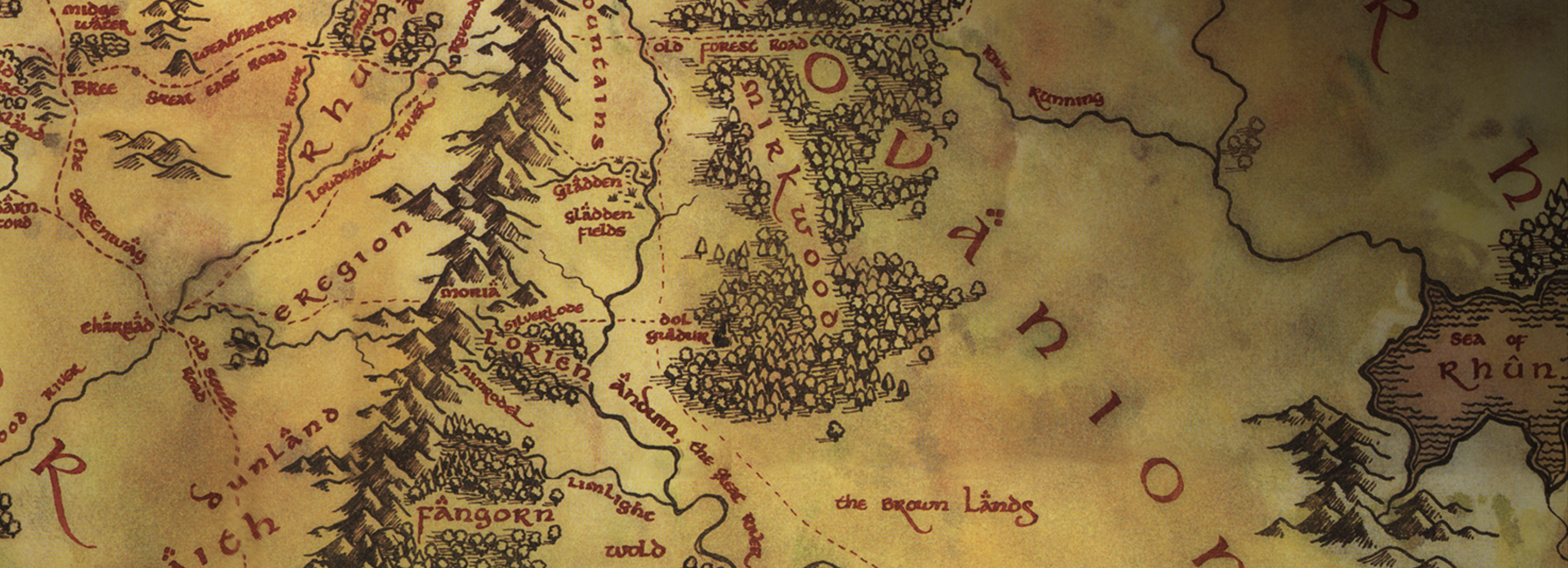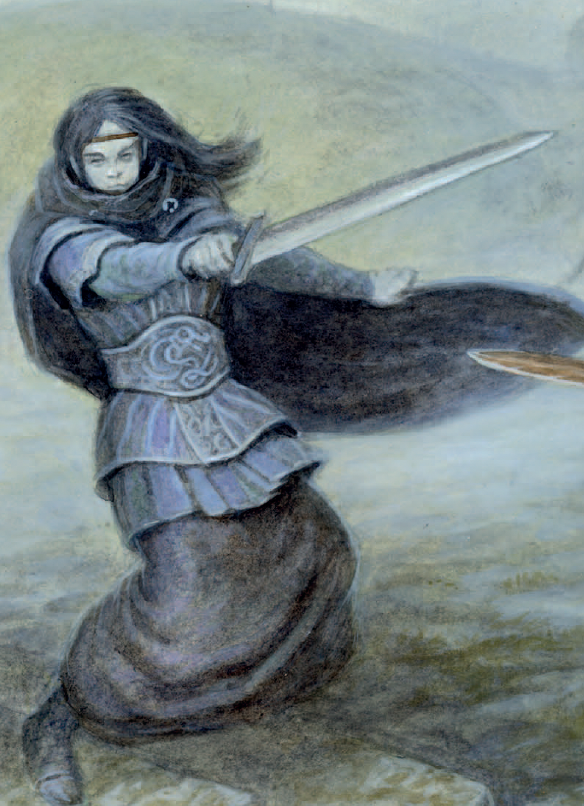High Elves of Rivendell Cultural Virtues
Artificer of Eregion
Many eyes were turned to Elrond in fear and wonder as he told of the Elven-smiths of Eregion and their friendship with Moria, and their eagerness for knowledge.You are studying the ancient craft of the Elven-smiths of Eregion, the greatest craftsmen of your kin. You learn how to Evaluate Treasure when you first select this virtue. You may later master the secret of how to Enhance Weapons by training during your undertaking; finally, you discover how to Enchant Weapons by spending another undertaking training at your forge. Only Imladris (or another suitable Elven Sanctuary) can provide you the tools and materials to make use of these abilities.
Evaluate Treasure
You recognise the runes and secret symbols employed by the artificers of old to mark their work. When you discover a Hoard during an Adventuring phase you may treat the Hoard rating as being one more * than normal, affording you the opportunity to spend additional Hit Dice to make another Magical Treasure roll.Enhance Weapons
Choose the Elven-smithing undertaking (see page 119) to retire to your smithy and customise a weapon to suit the combat characteristics of its wielder. When you first enhance a weapon in your smithy, its user gains a non-magical bonus of +1 to all his attack rolls using the customised weapon. You may later undertake to improve the same weapon once again, for a total bonus of +2. These enhancement bonuses are applied until the hero wielding the weapon improves his Proficiency Bonus. When this happens, the companion loses the associated bonuses, but you may eventually enhance it again, repeating the customising procedure. Note that while certainly skillful, you cannot improve the craftsmanship of old: you may only enhance a weapon that does not have a magical bonus. For example, you may not improve Dwarf-forged weapons, Birthright weapons, certain Cultural Heirlooms, or weapons that possess Enchanted Qualities. You can, after an enhancing a normal weapon, enchant that weapon once you learn the Enchant Weapons ability.Enchant Weapons
Choose the Elven-smithing undertaking to use all your cunning as an artificer to work some of the light of the Blessed Realm into a weapon. The improved weapon now may harm creatures that would be normally vulnerable to enchanted weapons (like Wraiths and Ghosts, for example) and deals magical damage of its normal damage type.Beauty of the Stars
Pippin afterwards recalled little of either food or drink for his mind was so filled with the light upon the Elf-faces.Your beauty is so unearthly that all but the hardest-hearted of Mortals can gaze upon you and not be swayed – or bewitched – by your countenance, even if afterwards they retain only a vague memory of anything but your glory. Raise your Charisma score by 1 point, to a maximum of 21. Additionally, when you serve as spokesperson for the Company in an Audience you automatically gain Advantage on the Introduction check. Finally, if you succeed at the Final Audience check, you may select one of the benefits below:
- When resolving an audience with Mortals (Dwarves, Hobbits, Men of all kinds), the Company counts as having achieved the best possible result (succeeding by +6 or more, usually). Otherwise this benefit instead raises the level of success by one step.
- After resolving an audience with Mortals, choose a Loremaster character: that creature retains only the vaguest memory of what was said or agreed. This effect counts as a magical Virtue for the purposes of increasing a Company’s Hunt score.
Elbereth Githoniel!
"A Elbereth Gilthoniel – o menel palan-diriel, – le nallon sí di’nguruthos!"The name of Elbereth, the Queen of the Stars, is revered by all the Eldar still dwelling in Middle-earth. You may call on her name in a moment of great need, asking the Kindler to bestow her grace upon you. If you or one of your companions have a level of Exhaustion or are Miserable, you can invoke the name of Elbereth and spend Inspiration. You gain Advantage on your next roll. Additionally, each Elven hero, Elf-friend and any who have been Blessed by the First-born (see page 76 of Wilderland Adventures) in the Company gain Advantage on their next die roll too.
Might of the Firstborn
…on his brow sat wisdom, and in his hand was strength.By the power that is in them, Elf-lords can fight the most wicked among the servants of the Enemy. You may use your reaction and spend two Hit Dice to prevent an enemy creature from taking an action on its turn. The creature can still use its bonus action if it has one and that bonus action does not rely on the creature taking an action. For example, Might of the Firstborn cannot negate the Fearsome Bellow of a Hill-troll but a Savage Assault requires the creature to have taken the Attack action and thus it would be stymied by the High Elf. After using this ability, you must make a Corruption check, a DC 15 Wisdom saving throw. If you fail, you gain 1 point of Shadow and you may not use Might of the Firstborn again until you take a short or long rest.
Skill of the Eldar
"…we put the thought of all that we love into all that we make."At the height of their powers, Elves are capable of reaching levels of finesse unattainable by mortals. When you succeed at an ability check you may spend Inspiration. If you do so, you are considered to have rolled a natural 20 on the die and gain whatever benefits such a result would grant for that check. When you use this Virtue something unusual has taken place, something that Mortal onlookers can only attribute to ‘Elf-magic’. Using this Virtue raises the Hunt score for the Eye of Mordor.
Remove these ads. Join the Worldbuilders Guild





Comments